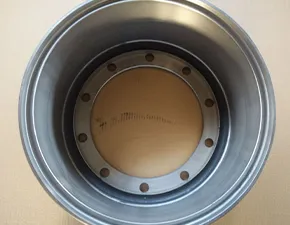
-
 Afrikaans
Afrikaans -
 Albanian
Albanian -
 Amharic
Amharic -
 Arabic
Arabic -
 Armenian
Armenian -
 Azerbaijani
Azerbaijani -
 Basque
Basque -
 Belarusian
Belarusian -
 Bengali
Bengali -
 Bosnian
Bosnian -
 Bulgarian
Bulgarian -
 Catalan
Catalan -
 Cebuano
Cebuano -
 Corsican
Corsican -
 Croatian
Croatian -
 Czech
Czech -
 Danish
Danish -
 Dutch
Dutch -
 English
English -
 Esperanto
Esperanto -
 Estonian
Estonian -
 Finnish
Finnish -
 French
French -
 Frisian
Frisian -
 Galician
Galician -
 Georgian
Georgian -
 German
German -
 Greek
Greek -
 Gujarati
Gujarati -
 Haitian Creole
Haitian Creole -
 hausa
hausa -
 hawaiian
hawaiian -
 Hebrew
Hebrew -
 Hindi
Hindi -
 Miao
Miao -
 Hungarian
Hungarian -
 Icelandic
Icelandic -
 igbo
igbo -
 Indonesian
Indonesian -
 irish
irish -
 Italian
Italian -
 Japanese
Japanese -
 Javanese
Javanese -
 Kannada
Kannada -
 kazakh
kazakh -
 Khmer
Khmer -
 Rwandese
Rwandese -
 Korean
Korean -
 Kurdish
Kurdish -
 Kyrgyz
Kyrgyz -
 Lao
Lao -
 Latin
Latin -
 Latvian
Latvian -
 Lithuanian
Lithuanian -
 Luxembourgish
Luxembourgish -
 Macedonian
Macedonian -
 Malgashi
Malgashi -
 Malay
Malay -
 Malayalam
Malayalam -
 Maltese
Maltese -
 Maori
Maori -
 Marathi
Marathi -
 Mongolian
Mongolian -
 Myanmar
Myanmar -
 Nepali
Nepali -
 Norwegian
Norwegian -
 Norwegian
Norwegian -
 Occitan
Occitan -
 Pashto
Pashto -
 Persian
Persian -
 Polish
Polish -
 Portuguese
Portuguese -
 Punjabi
Punjabi -
 Romanian
Romanian -
 Russian
Russian -
 Samoan
Samoan -
 Scottish Gaelic
Scottish Gaelic -
 Serbian
Serbian -
 Sesotho
Sesotho -
 Shona
Shona -
 Sindhi
Sindhi -
 Sinhala
Sinhala -
 Slovak
Slovak -
 Slovenian
Slovenian -
 Somali
Somali -
 Spanish
Spanish -
 Sundanese
Sundanese -
 Swahili
Swahili -
 Swedish
Swedish -
 Tagalog
Tagalog -
 Tajik
Tajik -
 Tamil
Tamil -
 Tatar
Tatar -
 Telugu
Telugu -
 Thai
Thai -
 Turkish
Turkish -
 Turkmen
Turkmen -
 Ukrainian
Ukrainian -
 Urdu
Urdu -
 Uighur
Uighur -
 Uzbek
Uzbek -
 Vietnamese
Vietnamese -
 Welsh
Welsh -
 Bantu
Bantu -
 Yiddish
Yiddish -
 Yoruba
Yoruba -
 Zulu
Zulu
Can Brake Drums Create Vibrations in Your Vehicle's Performance and Handling
Can Brake Drums Cause Vibration?
When it comes to vehicle safety and performance, the braking system plays a pivotal role. Brake drums, particularly in drum brake systems, are essential components that can significantly affect how well a vehicle stops and how comfortable it feels while driving. One often overlooked aspect of brake drums is their potential to cause vibrations while the vehicle is in motion. Understanding how brake drums can lead to such vibrations is crucial for vehicle maintenance and safety.
Understanding Brake Drums
Brake drums are circular metal housings that enclose brake shoes and are typically found in older vehicles, commercial trucks, and some performance vehicles. When a driver presses the brake pedal, hydraulic pressure forces the brake shoes against the inside of the drum, creating friction that slows down the vehicle. This simple yet effective mechanism can, however, lead to various issues, including vibration.
Causes of Vibration from Brake Drums
1. Warping One of the most common reasons for vibration in vehicles equipped with drum brakes is the warping of the brake drum. High temperatures generated during braking can cause the metal to expand unevenly, leading to a distorting shape. When the drum is warped, the brake shoes cannot make consistent contact, resulting in a pulsation or vibration felt through the brake pedal and the vehicle's body.
2. Improper Installation If brake drums are poorly installed, they may not sit evenly on the axle. This misalignment can result in an uneven surface that, when in motion, causes the vehicle to vibrate. It’s crucial that brake components are installed according to the manufacturer's specifications to avoid such issues.
3. Brake Shoe Wear Over time, brake shoes can wear unevenly or become contaminated with oil or brake fluid. This can lead to inconsistent braking pressure against the drum. When the brakes are applied, the irregular surface creates vibrations as the shoes interact with the drum.
4. Build-Up of Rust and Debris Brake drums can accumulate rust, dirt, and debris over time, particularly if the vehicle is not regularly maintained or if it's driven in harsh conditions. When this build-up occurs, it can create an uneven surface that also contributes to vibrations during braking.
can brake drums cause vibration

5. Wheel Alignment and Suspension Issues While not directly related to the brake drums themselves, poor wheel alignment or problems with the vehicle’s suspension can amplify vibrations when braking. If the wheels are out of alignment, the entire braking system can be affected, causing noticeable vibrations that may be mistaken for brake-related issues.
Preventing Vibration Issues
To prevent vibrations caused by brake drums, regular inspections and maintenance are crucial. Here are a few tips
- Frequent Brake Inspections Regularly check your braking system for signs of wear or damage. This includes inspecting the brake drums and shoes for warping or uneven wear.
- Proper Installation Always ensure that brake components, including drums, are installed correctly by a qualified technician.
- Routine Cleaning Keep brake components clean and free of debris. Regular cleaning can prevent the accumulation of rust and dirt that could affect braking performance.
- Alignment Checks Schedule periodic wheel alignment and suspension inspections. This will help identify potential issues that may affect overall vehicle performance and safety.
In conclusion, brake drums can indeed cause vibrations if they are not properly maintained or if issues such as warping or uneven wear arise. Regular maintenance and attention to the braking system can ensure smooth operation and crucial safety when driving. Always prioritize vehicle maintenance to enjoy a safe and comfortable ride.
-
What Are Drum BrakesNewsJul.07,2025
-
Understanding Brake Drum MaterialNewsJul.07,2025
-
Semi-Trailer Brake Drum: A Key Component for Extreme Loads and Long-Distance TransportNewsJul.07,2025
-
Drum Brake Pads for SaleNewsJul.07,2025
-
Brake Drums for SaleNewsJul.07,2025
-
Brake Drum ManufacturerNewsJul.07,2025
-
Aluminum Brake Drums: The Future of High-Performance CarsNewsJul.07,2025
